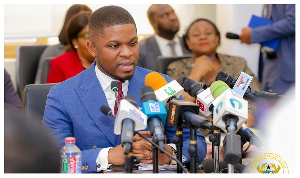It was 4th December, and this was my first time witnessing American politics and elections on American soil. Three days after elections, all news outlets were reporting a Hillary Clinton lead over Republican Donald Trump.
I was somehow excited that at least we will have the Democratic party occupying the White house which also by extension was immigrant-friendly. "But wait! Not so fast Daniel, because the electoral college will have to decide that" as told by Gambian American roommate.
An electoral college? What college is that? Where is this college located? Which people make up this college? And how many are they such that they can subvert the decisions of over 200 million Americans. These questions buzzed my mind.
So, what is an electoral college?
The United States host two main voting cycles: the major popular votes (national elections) and a quieter electoral college voting. I realized that when citizens cast their votes in the national elections, they are only recommending a candidate to be confirmed by the electoral college as President.
The college has the power through a vote to affirm the people's choice or reverse it to the other candidate. This college has over 538 representatives (as of 2016) nominated from all 50 States of the US before the national elections are held. A candidate will need to sweep 270 or more electoral college votes to become president.
That is why Hillary won the popular votes by 2.1% but lost the presidency to DJ Trump who won 304 of the electoral college.
Fair enough but I was still not convinced. Why will a global touted democracy like America give power to some 538 individuals to decide the nation's future? To me, that is not democracy.
This is tantamount to telling the people that they have no voice in who becomes president. You can't do this is my own Ghana. Not when the "let my vote count "group is widely awake. Does it mean they forced democracy on our neck, but never practiced democracy themselves? Further research revealed that the founders of America created the electoral college for two main reasons:
1. To balance the electoral power between the high and low populated areas or States. This will compel politicians to give equal attention to a lower populated state like Tennessee because they possess significant electoral college representatives. Therefore, preventing situations where politicians focused only on denser areas or States during campaign spending.
2. They were of the view that not every American is of sound mind and educated enough to be able to make sound judgment in choosing a President, hence relying on a simple majority all the time can be dangerous. Have you ever heard the saying that if the wise refuse to vote, the foolish elect a foolish leader to rule the wise? This is exactly what the second point looks to avoid so that no "foolish" president rules America.
A Ghanaian scenario: Based on the above reasons, when people ask me whether democracy is good for Africa, my reply is "they" never gave as the best form, or maybe we never adopted it well. For instance, if a country like the US with its higher literacy rate of 86% still cannot trust its citizens' choice for a president, then how much more Ghana with a literacy rate of 79% which in the year 2000 stood at 60%.
The mentalities by which some citizens vote for candidates in elections are very sickening. Ask the hawker on the street why he voted for NDC and she will tell you that because Mahama is handsome, tall, etc. Even among the educated folks, just ask why did you vote for Nana or NPP? They reply “Oh! he is tired so let us give him a chance”. Most don't vote base on issues and competence but rather on ethnic, sympathy, or tribal lines.
Moreover, it appears as any candidate who can convincingly win Ashanti and Greater Accra regions plus any swing region will highly probably win the presidency. Therefore, these regions tend to be battlegrounds, and power is almost consolidated in these regions. Why do you think people fight over common registration centers when we are months away from elections? It is all about the zeal to control the center before elections.
But can this be avoided by instituting an electoral college? Well, I don't know. Maybe we can have an electoral college system in Ghana comprising heads of institutions, members from the judiciary, learned academicians, policy analysts, representatives from the clergy, and well-educated individuals from all regions in Ghana. When implemented, a kayaye’s vote will not nullify that of a professor. Neither will a foot soldier's vote nullify that of a Catholic Bishop.
Finally, in case you are inquisitive on how an electoral college system will play out in Ghana, just picture the election petition time when the destiny of the country rested on the supreme court judges. Therefore, do you think that Ghana needs an electoral college system?
Opinions of Tuesday, 28 July 2020
Columnist: Daniel Anini Baah















